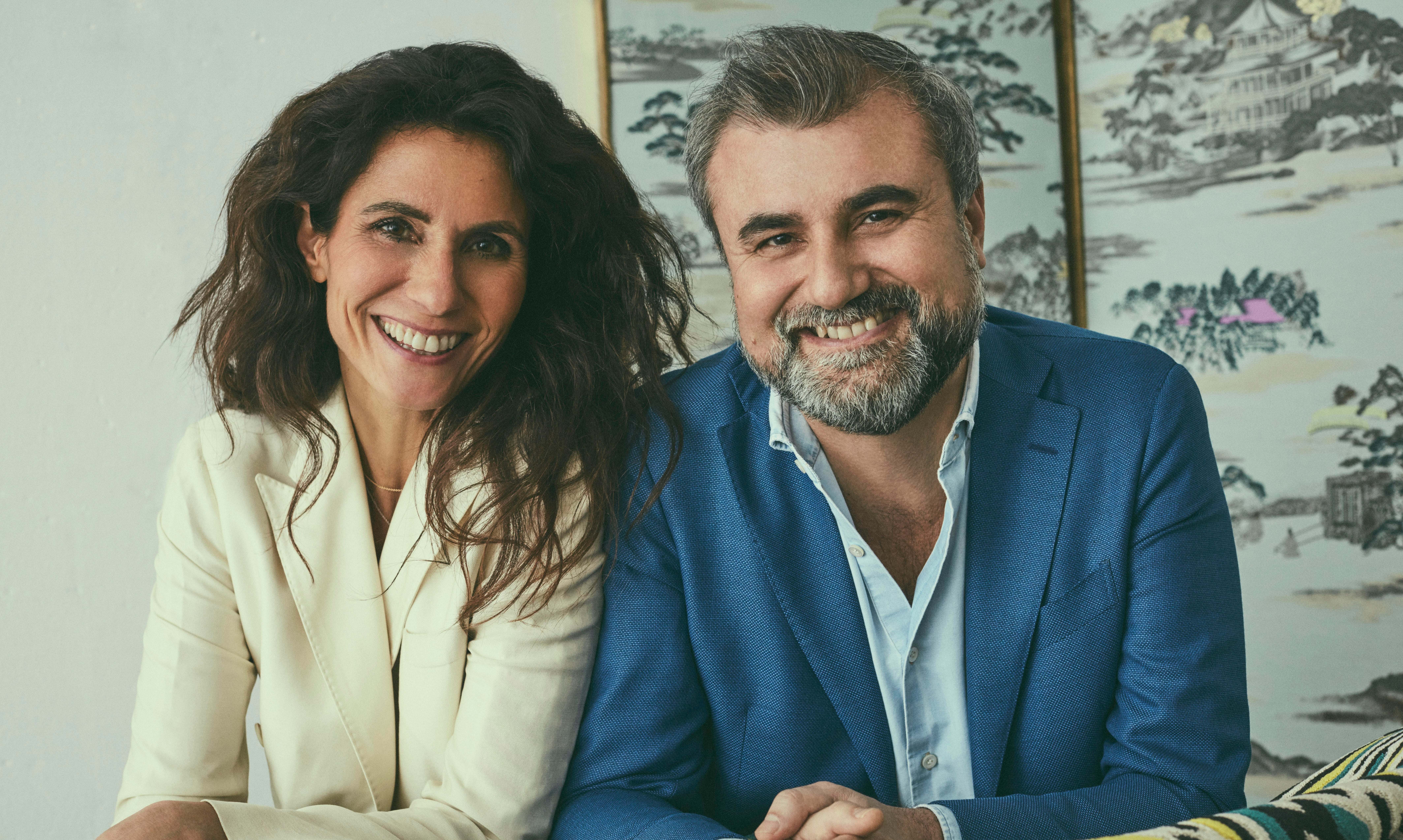“You are going to ruin me with all these colors,” Caterina and Raffaele Fabrizio’s father told them after they began adding an assortment of hues to Dedar’s product offerings. He was wrong: This “explosion of colors” made the family fabric business what it is today.
A little backstory. The Fabrizios’ parents, Nicola and Elda, founded Dedar near Como, Italy, in 1976 and ran it as a modest operation, mostly selling monochromatic patterns in the European market. The siblings were never supposed to take over the company: Caterina worked as a strategic consultant after college, and her brother Raffaele planned to be an architect. Both would end up joining the family business in the late 1990s and go on to grow the company from 12 employees to 200. The Fabrizios helped develop one of the many things the brand is known for: super functional, washable fabrics in extra-wide sizing—now in an assortment of colors and materials. “We have not received heritage; we’ve built something together,” Caterina tells host Dennis Scully on the latest episode of The Business of Home Podcast.
Though the siblings are successful in their own right, they say their mother and father continue to inspire the company today. “[Dedar] has a special meaning. It’s courage and elegance in the sense that we say a courageous father and an elegant mother,” Caterina says. These qualities find expression in the tigers depicted in the company’s upcoming collection. Elsewhere in the episode, the Fabrizios talk about growing the brand’s presence in France, navigating the differences between the European and American markets and filling the gaps in the slowly evolving yet increasingly digital fabric industry.
Crucial insight: The duo has collaborated with fashion brands like Hermès and Persol, and they stress the importance of working alongside partners with different perspectives and ideas. “Both parties are enriched by a collaboration. It’s part of our pleasure to bridge with an eye that is different from ours,” says Caterina. “There is something very refreshing and nourishing in collaborations.”
Key quote: “[When I decided to join the company], I didn’t see the opportunity in terms of business growth or KPIs or whatever. Not at all. I saw the opportunity for a beautiful Dedar. I saw there was a connection that was very authentic and true between what my parents were doing and what we were feeling was important,” says Caterina. “Our vision of fabrics was more linked to the emotion that fabrics bring. This emotion would come from going beyond normal boundaries.”
Listen to the show below. If you like what you hear, subscribe on Apple Podcasts or Spotify. This episode is sponsored by Universal Furniture and Hooker Furniture.





























